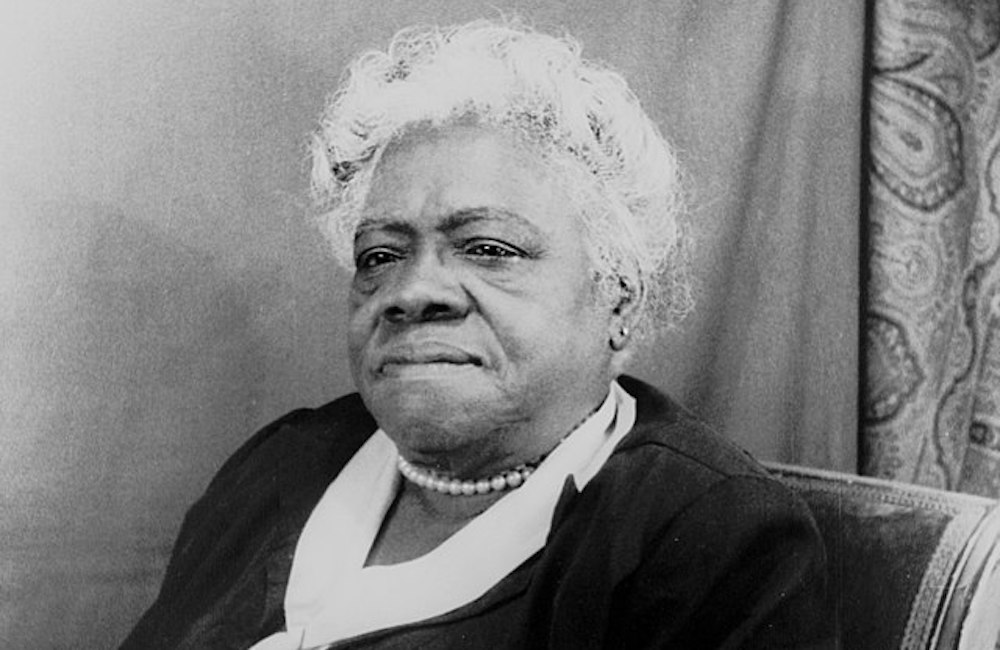
Mary McLeod Bethune led an extraordinary life. The daughter of former enslaved people used the power of education, political activism, and civil service to advance racial and gender equality throughout the United States and the world.
In 1935, Bethune founded the National Council of Negro Women, which set educational standards for today’s Black colleges, and her role as an advisor to President Franklin Delano Roosevelt gave African Americans an advocate in government. She established the organization's flagship publication, “Aframerican Women's Journal,” and served as president or leader for a number of African American women's organizations, including the National Association for Colored Women and the National Youth Administration's Negro Division. She was the sole African American woman officially a part of the U.S. delegation that created the United Nations charter, and she held a leadership position for the American Women's Voluntary Services founded by Alice Throckmorton McLean.
Born Mary Jane McLeod on July 10, 1875, in Mayesville, South Carolina, Mary McLeod Bethune was the 15th of 17 children. She started working in fields with her family at age five and became the first person in her family to receive a formal education, an unusual opportunity among African Americans in the South following the Civil War. She graduated from Scotia Seminary (now Barber-Scotia College) in 1893 and from the Moody Bible Institute in Chicago in 1895, after she which she began a career as an educator.
After marrying Albertus Bethune, she established a missionary school in Jacksonville, Florida, before moving to Daytona Beach to create the Daytona Literary and Industrial Training Institute for Negro Girls. She believed that education provided the key to racial advancement. Within two years, she had 250 students, many of whom lived in the school’s dormitories. Eventually, Bethune’s school became a college, merging with the all-male Cookman Institute to form Bethune-Cookman College in 1929.
In 1940, Bethune became vice president of the National Association for the Advancement of Colored People (NAACP), a position she held for the rest of her life. A businesswoman as well, she also co-owned a Daytona, Florida resort and co-founded the Central Life Insurance Company of Tampa.
Bethune’s legacy has been honored with a myriad of accolades. She has more than a dozen schools named for her, was inducted into the National Women's Hall of Fame, honored with a postage stamp, and in July 2022, a statue of her was unveiled in the United States Capitol, making her the first Black American represented in the National Statuary Hall Collection.
